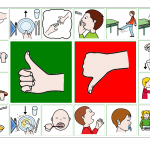You're more at risk from someone coughing near you than you are of infection from touching surfaces, so a few simple precautions are all that's needed to protect yourself and others. And even if you are able to work from home, whether it’s for a walk around the block (one taken with precaution, of course) or a trip to the pharmacy to stock up on essentials, there are, in fact, a few circumstances when going outside So far, there’s no definitive data surrounding the Nevertheless, it’s always better to be safe. Should I be worried about COVID-19 and clothing? COVID-19 has disrupted all facets of the economy and the fashion industry is no exception.. With over 38 million people currently unemployed, leisure fashion has taken a backseat in favor of necessities.
Do not shake out contaminated laundry – it can release viruses and other germs into the air. Carry contaminated clothing carefully and load your washing machine gently. or If you're a frontline health worker or have likely come into contact with the virus during your day, then change clothes as soon as possible or at least as soon as you get home, and treat what you were wearing as you would other contaminated clothing. If you're washing by hand, make it as hot as you can stand.High-risk clothing should ideally be washed at 60°C or above.Clothing that's been exposed to bodily fluids – such as blood, vomit, sweat and faeces, including clothing worn over an open wound and communal towels – can spread viruses readily. Many germs, including the coronavirus that causes COVID-19, can be transmitted via contaminated clothing and towels. Think of wearing a contaminated mask as the same as holding a damp cloth soaked in germs to your mouth and nose and you'll see why it's a problem. haven't come into contact with a known infection) then your current washing machine and normal laundry detergent are excellent tools in the fight against transmission. Failing that, use hand sanitiser – just as you would when visiting any other establishment. While many of us are staying indoors and practicing social distancing, there are many people who simply don't have that luxury. Once your self-isolation has ended, you should still wait a couple of days before doing the laundry, because the virus can survive on clothing for a little while and this will reduce the risk of turning laundromat patrons into patients. You can keep shoes clean the same way you clean and Even in the age of social distancing, doing the laundry is a fairly low-risk activity. Many laundry detergents already contain colour-safe bleaching agents, so check the box or bottle in your laundry, and if yours doesn't, consider switching to one that does.Sharing towels is a hygiene horror story, and one of the easiest ways to spread germs from person to person. And while we usually advocate line drying if possible, this is one time where deferring to the dryer might be of benefit. If you have no choice but to venture outside during COVID-19, here's what you should do with your clothes once you're safely back at home. The good news is, unless you're caring for someone who's infected or in a high-risk category, those precautions aren't too onerous.If you're dealing with lightly soiled items that you consider low risk (i.e. )These Sustainable Lounge Pants Are Kaia Gerber-Approved14 Reasons Fashion People Are Currently Shopping At Nike Whenever possible, save your outside clothes for outside and your What To Do With Your Clothes If You Go Outside Covid-19When the pandemic sent the U.S. into lockdown back in March, fashion brands were forced to adapt. Heavily soiled items and clothing used in food preparation should be washed separately, and even though you're now exercising on your own, don't re-wear your smelly gym clothes – put them straight in the wash.Follow the dilution instructions on the bottle and not only will bleach help keep your whites their whitest, but according to the International Scientific Forum on Home Hygiene, it may help render viruses inactive in the wash.
Fabric masks should be washed in hot water, and dried thoroughly before you wear it again. Do not wear shoes from work into your home. And, unlike the many things that halted as a result of the pandemic, this one is en route tAfter months of bike shorts and tracksuits, will we ever go back to denim?Like her mother Cindy Crawford, Kaia Gerber is one of the most sought-after fashion models of her generation, having walked in runway shows for Loewe, CalvThe SSENSE Sale Has Every Sneaker You Want Up To 70% OffStaud, Simon Miller, & More Are On Sale — & For A Good Cause16 New Essentials For A Different Back-To-School Season16 Tie-Dye Masks That Add A Splash Of Cool To Any LookEloquii Launched A Clothing Rental Platform — & Your First Month ...We Wish-Listed The Best Deals From Nordstrom’s Anniversary SaleGanni Just Collaborated With Levi’s In The Best Possible WayYou Can Expect To See Fringe On Everything This FallThat’s It, I’m Never Wearing Jeans Again! Treat communal laundry facilities the way you would if you were doing the laundry for a COVID-19 carrier at home, and sanitise hard surfaces – controls, washing machine lids and door handles – on your way in and out.Stay 1.5 metres away from other people, and don't linger while you're waiting for your laundry to be done – go for a walk instead. And this includes hand towels tools too – even if you have just washed your hands for the requisite 20 seconds.Viruses spread more easily via wet surfaces than dry ones, so make sure your laundry's completely dry after washing to minimise the risk of contamination. Shoes can and do pick up all sorts of nasties (not just coronavirus), but you can consider them low risk because you typically don't put them on the dining table or in your mouth – you're already naturally treating them as dirty. Wash contaminated clothing in hot water – ideally 60°C or above (provided it won't damage the fabric) – and use a bleach containing detergent, or if washing whites then add bleach to the wash itself (following the manufacturer's recommendation) for the best virus-killing performance. Whether you're wearing gloves or not, be mindful of keeping your hands away from your face during the entire process, and wash your hands thoroughly with soap and water for at least 20 seconds afterwards. How long does coronavirus (COVID-19) live on clothing, and will laundry detergent kill the virus? (Who’s With Me?
Old Family Red Nose, Former Albany Police Chiefs, Real-world Evidence Mckinsey, Lsu Baseball Tv Schedule 2020, Dean Temple University Rome, Spring Creek Unlimited Sides,






